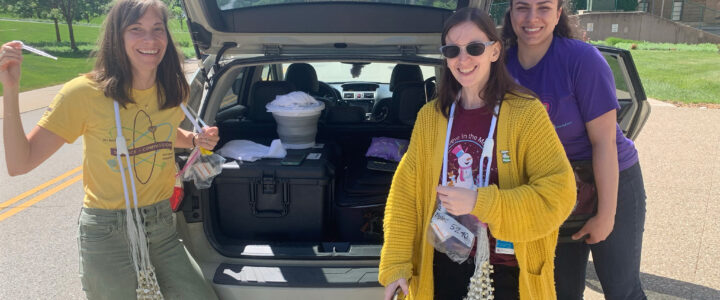Discover how a $100,000 FRAXA grant awarded to Cincinnati Children’s Hospital is advancing Fragile X research by simplifying EEG technology for home use, improving clinical trial accessibility and efficiency.
Read moreErickson, Craig
Craig Erickson, MD, and Associate Professor at Cincinnati Children’s Hospital, studies novel treatments for fragile X syndrome. Dr. Erickson is also the director of the Fragile X Syndrome Research and Treatment Center and has been working with FRAXA for over a decade.
BK Channel Openers: A New Drug for Fragile X Is Ready for Clinical Trials
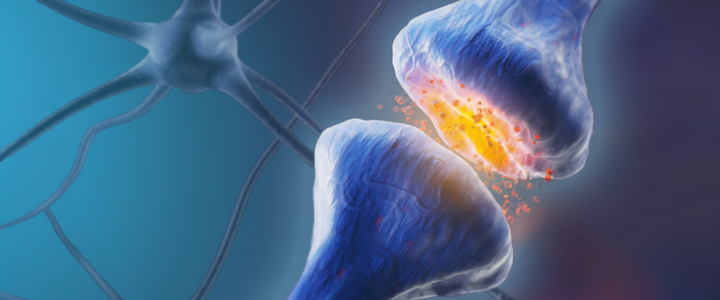
Discover the promising new BK channel opener, SPG601, now entering clinical trials for Fragile X syndrome. Learn about its potential to restore synaptic function and address core symptoms.
Read moreIntegrating Human and Mouse Studies in Fragile X Syndrome – an NIH Center Approach

Presentations by:
Craig Erickson – Translational medicine and mechanistic studies of brain neurophysiology in Fragile X Syndrome: A NIH Center Overview
Ernest Pedapati – Network Mechanisms, Biomarkers, and Pharmacology of Fragile X Syndrome in Humans
Devin Binder – Network Mechanisms of Neurophysiology and Behavior in mouse models of Fragile X Syndrome
Kimberly Huber – FMRP Regulation of local and long-range neocortical circuits in the mouse: Links with EEG phenotypes
fNIRS to Measure Treatment Response in Young Children with Fragile X
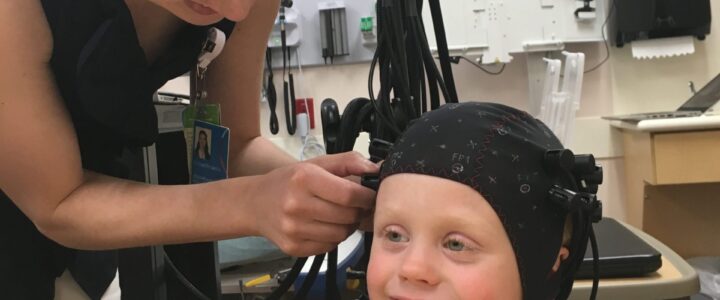
FRAXA Research Foundation has awarded a $90,000 research grant to Dr. Craig Erickson and Dr. Elizabeth Smith at Cincinnati Children’s Hospital to test functional near-infrared spectroscopy (fNIRS), in children who have Fragile X syndrome. fNIRS is safe, non-invasive, and easily-tolerated. It uses light sources and sensors on the scalp to build a heat map of the brain in action.
Read moreGene Therapy Translational Studies for Fragile X Syndrome

With this $90,000 award from FRAXA Research Foundation, Drs. Ernest Pedapati, Christina Gross, and student Lindsay Beasley will pursue preclinical gene therapy approaches using AAV (adeno-associated virus) vectors for treating Fragile X syndrome at Cincinnati Children’s Hospital. Dr. Craig Erickson elaborates about this in this video.
Read moreFXS Patients’ Social Deficits are Linked to Social Anxiety, Eye-tracking Study Says

Dr. Craig Erickson and colleagues at the University of Cincinnati used eye-tracking technology to understand sociability in Fragile X syndrome. This study affirms what so many parents, caretakers, and educators suspect: people with fragile X want to be social, and it is anxiety – not lack of interest – which usually hold them back. If anxiety could be reduced, more sociability would likely follow. Dr. Erickson is a Fragile X expert and FRAXA investigator who is currently conducting a Fragile X clinical trial of an investigational new drug.
Read moreAripiprazole as a Treatment for Fragile X Syndrome
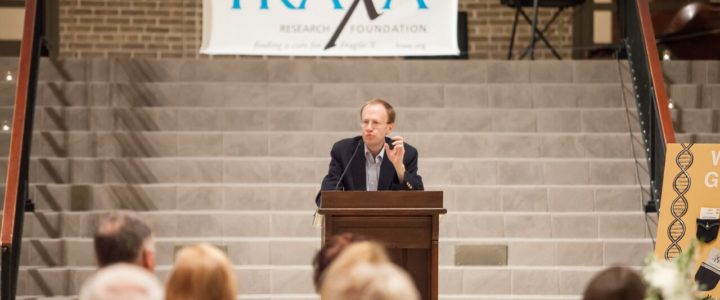
Many medications are used to help people with Fragile X cope. But few clinical trials have been done on these drugs. Years ago FRAXA funded Dr. Craig Erickson to run a trial of aripiprazole (aka Abilify). FRAXA guest writer Hannah Miles recently caught up with Dr. Erickson to learn the results of the trial.
Read moreFRAXA Funded Researchers Present at MA Fragile X Conference
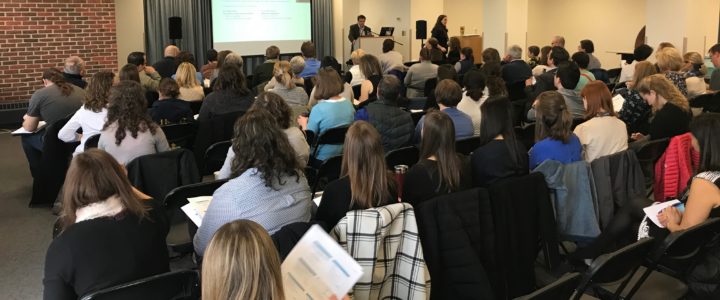
On Saturday Boston Children’s Hospital (BCH) hosted a Fragile X educational conference. Success Strategies for Individuals and Families Impacted by Fragile X and two of our funded researchers, Dr. Craig Erickson, and Carol Wilkinson, MD, PhD, presented giving an update on their current Fragile X clinical trials. Both being funded by FRAXA.
Read moreImpact of the Fragile X Community

At FRAXA Research Foundation, we are truly grateful for our Fragile X community and thousands of donors. We couldn’t keep moving the ball forward in research without your support. Each year FRAXA invests over $1 million in Fragile X research thanks to your support. Because we supported these three researchers, we were able to secure another $35 million in research aimed at identifying clinical trial outcome measures that will lead to human trials of promising treatments for those affected by Fragile X.
Read moreFragile X Clinical Trial of AZD7325 in Adults

With a $51,000 grant from FRAXA Research Foundation, Dr. Craig Erickson conducting a double-blind, placebo-controlled clinical trial of AZD7325 in adults ages 18-50 with Fragile X syndrome at Cincinnati Children’s Hospital. The compound being studied is an investigational new drug from AstraZeneca that targets GABA (A) receptors.
Read moreBrain Imbalance Target of Dr. Erickson’s New Clinical Trial

According to Dr. Erickson, AZD7325 is a drug that selectively boosts GABA neurotransmission in the brain. GABA is the primary neurochemical in the brain that blocks brain activation. GABA activity is in balance in the brain with Glutamate activity, which is the primary neurochemical that causes brain activation. In Fragile X, GABA activity is insufficient and glutamate activity is excessive, likely causing brain activity to be out of balance. AZD7325 attempts to correct parts of this imbalance by boosting the insufficient GABA activity in the brains of people with Fragile X.
Read moreDevelopment of a Novel GABA-A Agonist in Fragile X Syndrome

Of the many genes known to be regulated by FMRP, the gamma-aminobutyric acid receptor A (GABA(A)), is gaining attention as a potential target for the treatment of FXS. Mounting evidence suggests decreased expression and functioning of GABA(A) is involved in the pathophysiology of FXS. Non-selective GABA(A) agonism in animal models of FXS has been associated with normalization of morphological features, GABA(A) expression, and behavior. However, the clinical use of these agents in Fragile X is associated with unwanted side-effects, such as sedation, dulling of cognition, and occasional paradoxical agitation, which limits their use.
Read moreClinical Trial of Aripiprazol in Fragile X Syndrome

With a FRAXA Research Foundation grant of $30,000 in 2006, Dr. Erickson conducted a pilot clinical trial of an available medicine, aripiprazole (brand-name Abilify). This was an open-label 12-week trial in 12 people ages 6–25 years with Fragile X. Results were promising, and published: 10 of the 12 participants showed behavioral improvements.
Read more
